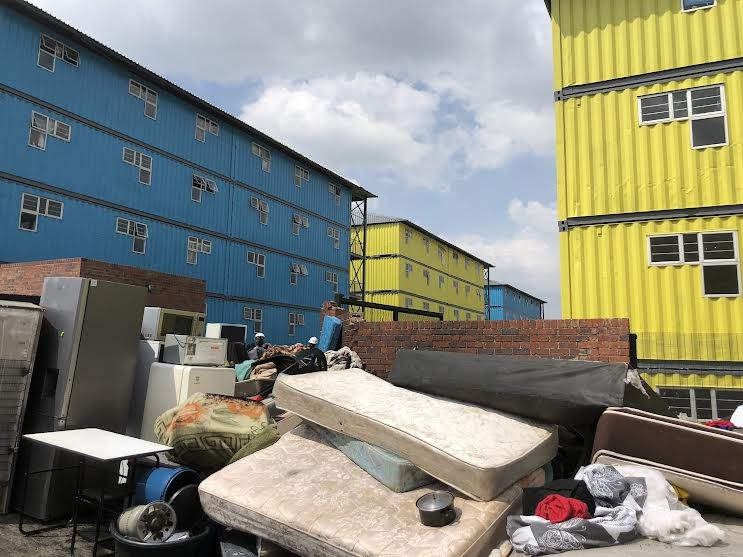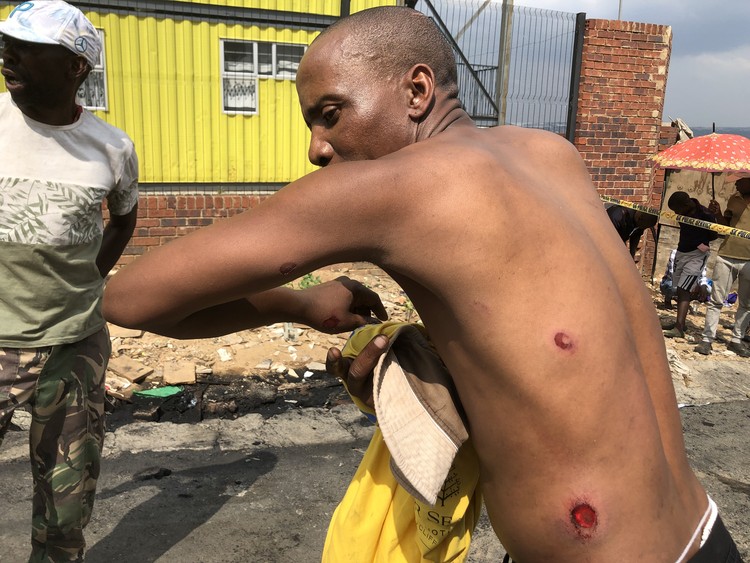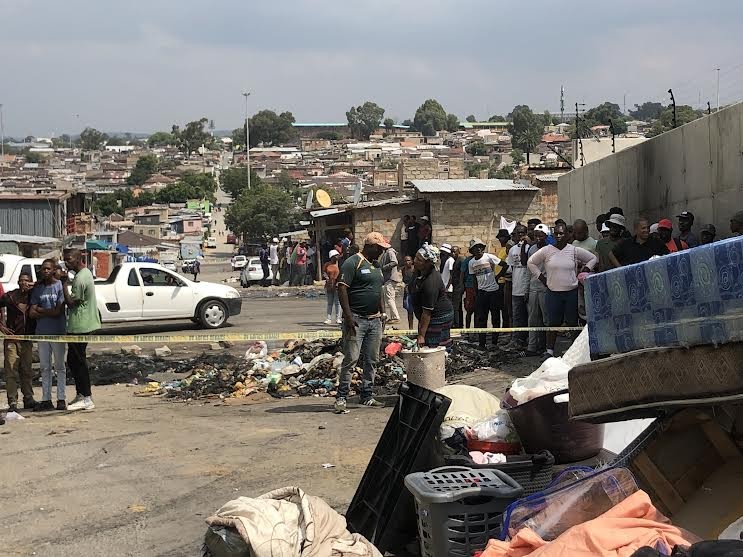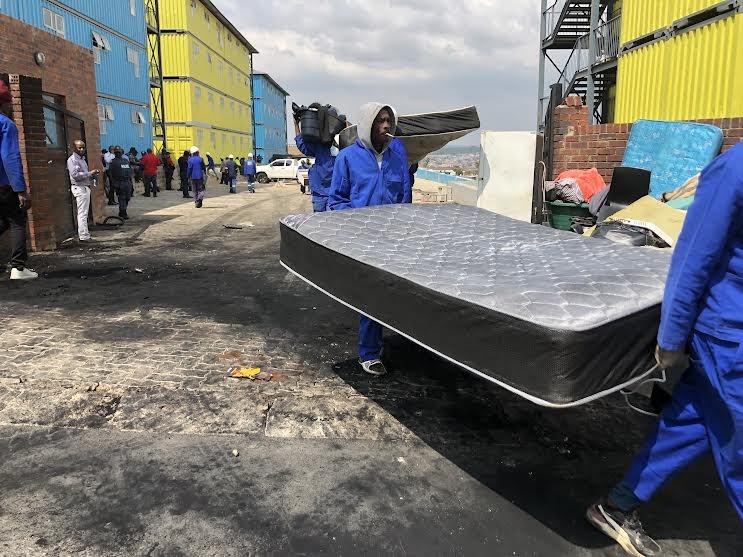Evicted Alexandra families spend the night on the street
Dozens of families evicted from container housing by the City of Johannesburg
Families evicted from container housing in Alexandra spent the night on the street. Photos: Silver Sibiya
- Dozens of Alexandra families spent the night on the streets in the rain after they were evicted by the City of Johannesburg from containers they had occupied.
- Container housing was set up to mitigate the Covid pandemic by moving people out of densely populated areas in Alexandra.
- But when no-one was moved, some residents of the township occupied the containers.
- The City’s lawyer said it was executing a court order issued last year.
- Police used rubber bullets to disperse protesters.
Dozens of Alexandra families spent the night on the streets after the City of Johannesburg evicted them on Monday from container housing units on 4th Avenue.
The units were set up to mitigate the Covid pandemic. When the City of Johannesburg set up the containers, it announced plans to move 1,600 people from densely populated parts of the township, such as Setswetla.
But when they were left empty, families from across Alexandra occupied them.
On Monday the City of Johannesburg sent Johannesburg Metro Police Department officers, Public Order Police and private security guards to evict them.
The occupiers tried to stop the police by blocking the streets. Residents said police fired rubber bullets to disperse the protesters, who blocked Main Road and Marlboro Drive with bricks and burning tyres during the eviction.
Police denied that anyone was arrested but GroundUp saw three protesters in a police van.
Gauteng Police spokesperson Colonel Dimakatso Nevhuhulwi said, “Rubber bullets were used to disperse the crowd and no injuries were reported.”
But resident Lethu Ntshaba said he had been shot and injured by rubber bullets multiple times. He showed GroundUp wounds on his hand and back.
Lethu Ntshaba showed GroundUp several wounds from rubber bullets, on his back and on his hand.
Ntshaba said he had moved into a container because he could no longer afford to pay rent. “I can’t buy food and pay my landlord, it’s just too much,” he said.
“I was shocked when I was shot by police because I was complying when they were removing us.”
People looked on helplessly as security company officers took their clothes and furniture and put them on the street.
“I have no idea how we’re going to deal with all of this. I don’t even know where my ID is,” said Nosandla Nkolweni, who was living in one of the containers with her child. “I’m now worried we are going to lose our furniture and clothes.”
She said the officers had told the residents they had been given three weeks to move and their time was up.
Residents watched helplessly as their belongings were removed.
One of the leaders of the tenants, Thabiso Dube, said the City should have provided them with alternative accommodation. “This is unconstitutional,” he said.
Victor Magobe spoke to GroundUp from the back of a police van. He said he had been arrested for obstructing the sheriff of the court. “I was showing the sheriff that I have an email from the lawyer that said the matter is in court and they can’t evict us but he didn’t want to hear of it. Then Panyaza Lesufi’s boys (crime prevention wardens widely referred to as the ‘AmaPanyaza’ after the premier) put handcuffs and put me in the bakkie saying I’m obstructing the sheriff.”
But Nevhuhulwi said, “There were no arrests.”
Elijah Ramonyai, a lawyer from the City who was on the scene, said two eviction orders had been issued by the courts in 2023 but residents had ignored them.
“We are coming here for the fourth time. They know that they are not supposed to be here. We’ve got two court orders, one from May and August, the August one saying they are in contempt of a court order. But as you can see they are still here. So they are not taking the court seriously.”
The City of Johannesburg did not respond to GroundUp’s questions.
Support independent journalism
Donate using Payfast

Don't miss out on the latest news
We respect your privacy, and promise we won't spam you.
Next: Call to stop “catastrophic” health care budget cuts
Previous: Mpumalanga delays building of school for learners with disabilities
© 2024 GroundUp. This article is licensed under a Creative Commons Attribution-NoDerivatives 4.0 International License.
You may republish this article, so long as you credit the authors and GroundUp, and do not change the text. Please include a link back to the original article.
We put an invisible pixel in the article so that we can count traffic to republishers. All analytics tools are solely on our servers. We do not give our logs to any third party. Logs are deleted after two weeks. We do not use any IP address identifying information except to count regional traffic. We are solely interested in counting hits, not tracking users. If you republish, please do not delete the invisible pixel.




